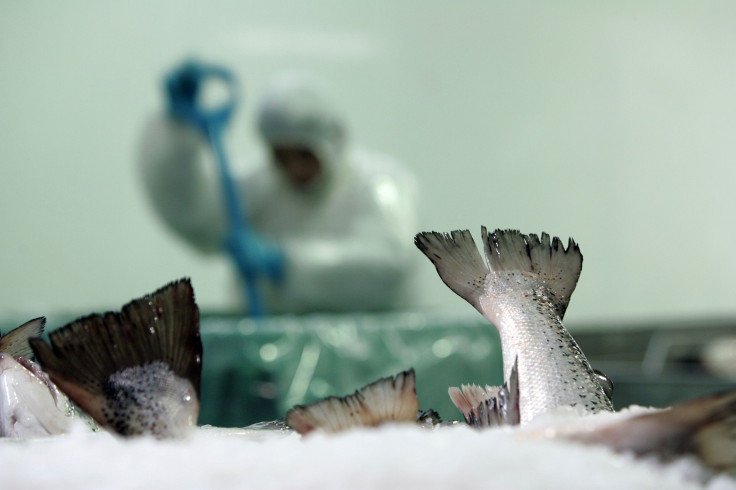FDA Closer to Approving Biotech Salmon, Critics Furious

A controversial genetically engineered salmon has moved a step closer to the consumer's dining table after the U.S. Food and Drug Administration said Friday the fish didn't appear likely to pose a threat to the environment or to humans who eat it.
AquAdvantage salmon eggs would produce fish with the potential to grow to market size in half the time of conventional salmon. If it gets a final go-ahead, it would be the first food from a transgenic animal - one whose genome has been altered - to be approved by the FDA.
The AquAdvantage Atlantic salmon egg was developed by AquaBounty Technology to speed up production to meet global seafood demand.
In a draft environmental assessment, the FDA affirmed earlier findings that the biotech salmon was not likely to be harmful. It said it would take comments from the public on its report for 60 days before making a final decision on approval.
"With respect to food safety, FDA has concluded that food from AquAdvantage salmon is as safe as food from conventional Atlantic salmon, and that there is a reasonable certainty of no harm from consumption," the FDA assessment states.
AquaBounty officials said they were caught by surprise by the news that its product was a step closer to approval as years of controversy had followed the company's application for a go-ahead from the regulator. They said they did not know the timing or details of the process the FDA will follow following the 60-day comment period.
"We are encouraged that the environmental assessment is being released and hope the government continues the science-based regulatory process," said AquaBounty Chief Executive Ronald Stotish.
Critics say the new salmon is a "dangerous experiment" and have pressured the FDA to reject it. They say the FDA has relied on outdated science and substandard methods for assessing the new fish.
"We are deeply concerned that the potential of these fish to cause allergic reactions has not been adequately researched," said Michael Hansen, a scientist at the Consumers Union. "FDA has allowed this fish to move forward based on tests of allergenicity of only six engineered fish, tests that actually did show an increase in allergy-causing potential."
There were also concerns the FDA would not require the genetically modified salmon to be labeled as such, and some critics said they may file a lawsuit to prevent what they fear could be the imminent approval of the engineered fish.
"Congress can still keep FDA from unleashing this dangerous experiment," said Wenonah Hauter, executive director of Food & Water Watch, a consumer advocacy group. "Although this latest FDA decision is a blow to consumer confidence, we encourage everyone to contact their members of Congress and demand this reckless decision be overturned."
The Center for Food Safety, another non-profit consumer protection group, was highly critical of the FDA report, and officials said they might sue the regulator over the issue.
"It is extremely disappointing that the Obama Administration continues to push approval of this dangerous and unnecessary product," said Andrew Kimbrell, executive director of the Center for Food Safety. "The GE salmon has no socially redeeming value. It's bad for the consumer, bad for the salmon industry and bad for the environment."
FDA spokeswoman Morgan Liscinsky said no final decisions have been made on labeling or on the application for approval.
"The release of these materials is not a decision on whether food from AquAdvantage Salmon requires additional labeling; nor is it a decision on the new animal drug application currently under review. It also does not provide a final food safety determination," Liscinsky said.
The AquAdvantage salmon would be an all-female population with eggs produced in a facility on Prince Edward Island in Canada and shipped to a "grow-out facility" in Panama, where they would be reared to market size and harvested for processing.



























